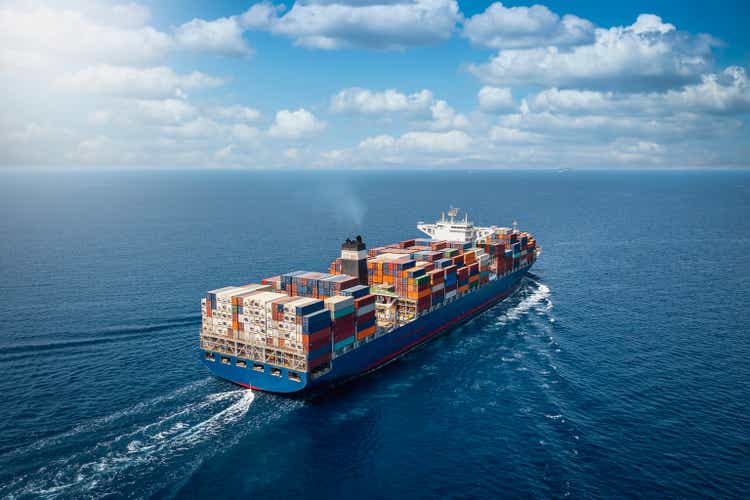SHansche
In 2017, David Sokol, the former CEO of Berkshire Hathaway Energy (when it was called MidAmerican Energy), became the chairman of Seaspan the container ship lessor. In the past five years, Sokol and his investment partners the Washington Family and Fairfax Financial Holdings (OTCPK:FRFHF) have begun to build what he recently defined as a no-fee public platform for long-term infrastructure investments. The holding company is now named Atlas Corporation (NYSE:ATCO) and the ship leasing business continues as Seaspan. They acquired Greater China Intermodal Investments in 2018 and APR Energy in 2020.
Yesterday, Sokol, the Washington family, Fairfax, and Ocean Network Express (ONE) submitted a non-binding offer to take Atlas private at $14.45/share. This price is a 25% premium to Thursday’s closing price, but 10% below the $16/share threshold Atlas traded at as recently as February. The board will form a committee of independent directors to evaluate the proposal.
As a shareholder of Atlas Corporation, I heard the news with significant dismay. Atlas is a high-quality company that has pursued a strategy of forming long-term relationships with its shipping line partners. They have the largest fleet of any shipping lessor, their fleet is younger than most lessors, and they offer their customers lease prices well below spot market rates in order to secure long-duration leases.
In the last two years, Atlas has secured long-term lease commitments on 70 new-build ships with a capacity of 847K TEU for a cost of $7.6B, arranged favorable financing at nearly 90% of the cost of the ships, and begun to accept delivery. To place this in context, Danaos Corporation (DAC) owns 71 containerships with 437K TEU of capacity.
So, we can simplify our understanding of the outlook for Atlas by understanding they will add a company the size of Danaos for about $800M of equity and $6.8B of debt. Atlas’ newbuilds also come with $11.4B of contracted revenue. (See slide 14 of Atlas’ May 2022 Investor Presentation).
Before taking into account the newbuild program, Atlas Corporation has $6.7B of contracted cash flows and $5.9B of net debt. After adding in the newbuilds, Atlas has $18.1B of contracted cash flows and an estimated $12.5B of debt. The fleet is nearly 2M TEUs, it is 4.9 years old and has a remaining lease duration of 7.3 years (see slide 9 of the Investor Presentation).
From the above, we can see that for a purchase price that assigns a $3.8B fully diluted market capitalization, the buyers are taking a minimal financial risk. The payback has already been contracted, and the remaining useful lives of the fleet plus APR Energy’s earnings are pure gravy.
Given the existing owners already control the company, little is gained by the buyout. If successful, owners of 70% of the business can force reluctant shareholders to sell for a price far below what they are likely to realize if they continue to own the business. Furthermore, given that shares are trading below $12/share, the majority owners could further intensify their ownership by purchasing shares in the open market or via a non-compulsory tender offer.
In short, the only people harmed by this offer are shareholders who do not want to sell for $14.45/share.
Conclusion: The buyout group should submit a non-compulsory tender offer and not muscle out minority shareholders.


Be the first to comment